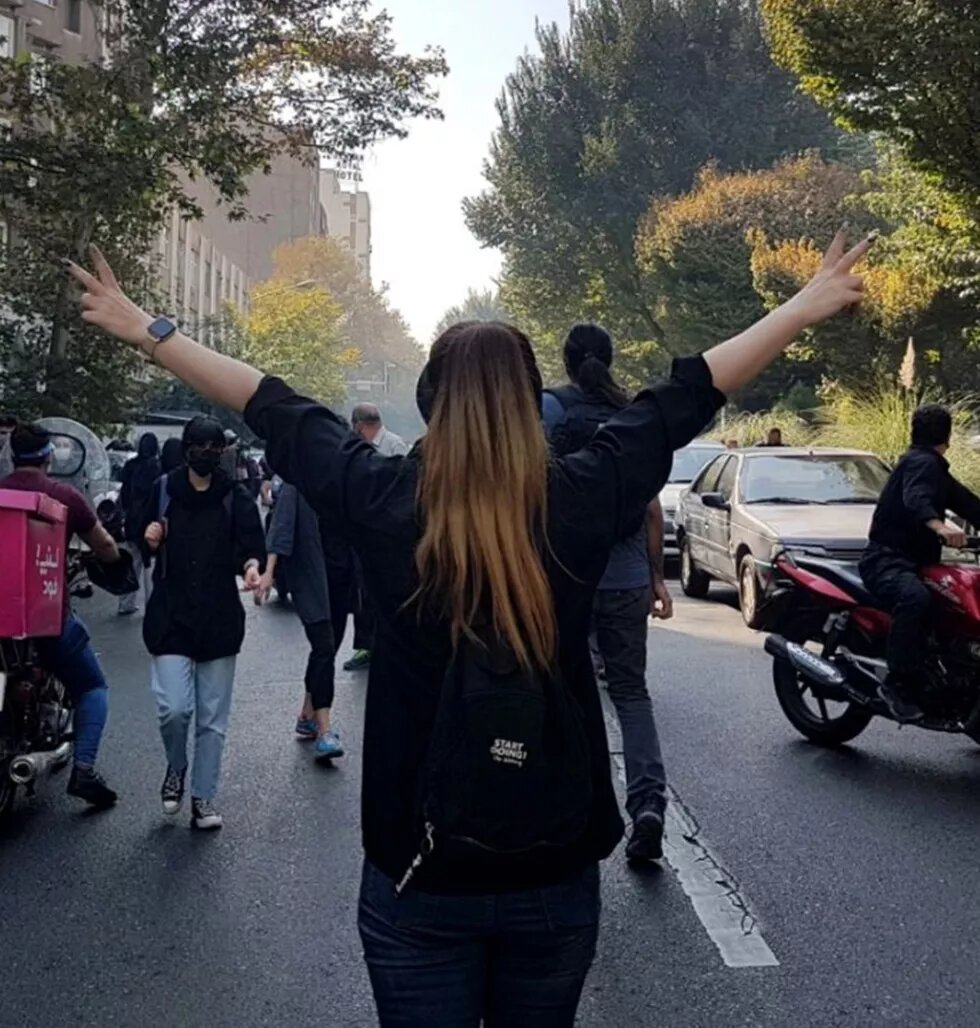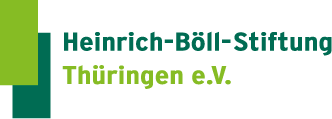In one of our interviews about the Iranian revolution, Parmida* tells us about her perspective on the current situation in Iran from Thuringia.

Who are you and what’s your connection to Iran?
My name is Parmida and I am originally from Iran. I was born in Tehran. When I was three years old, my family fled to Germany. I don't remember the first years of my life in Tehran and had no direct connection to Iran at school, with my friends and in the German environment that I grew up in. However, my family went to great lengths to ensure that I got to know Iran both linguistically and culturally. At home, I only speak Persian with my parents. When I was younger, I had Iranian lessons after school to learn how to read and write. I've also always had a lot of contact with the rest of my family in Iran and know the Persian cuisine and cultural scene well, simply because I grew up with it.
"There needs to be high pressure on an international level."
How would you describe the current state of the revolution in Iran?
The current situation in Iran frightens and makes me happy at the same time. It is so important that people are taking to the streets. It's great to see that people all over the world are coming together and expressing their solidarity. Making signs, writing speeches and making concrete demands to their own government and the Iranian government. Of course, it is long overdue that the whole world sees what is happening in Iran and the actions of the regime. But it is also very frightening to see more clearly what is happening. People are being brutally killed, bodies hidden, families tortured and much more. People who take to the streets fear for their lives. Because they cannot trust that their own state - their own fellow citizens - will not shoot and beat them when they stand up to them. We can't even begin to imagine what this is like, even though we have a comparatively unfiltered view of the protests right now. The protests are still going on, but it unsettles me that there doesn't seem to be a political strategy yet. People cannot go on living like this and expressing their frustration and anger in this way. There also needs to be high pressure on an international level. People need to be making concrete proposals, start organizing and networking. Expressions of solidarity by state leaders are a nice gesture, but much more is needed for regime change to become a foreseeable possibility.
How do you perceive Germany's perspective on what is happening in Iran, both in the media and in your social circles?
In my environment, I see a general interest in following and understanding the situation. But I also see that my social circle is especially politically engaged and doesn't reflect the perspective of the majority. When listening to podcasts, the news or talking to people, I was and still am disappointed that Iran is barely or not at all discussed. Around the time of the large demonstration in Berlin, there was a lot of coverage, a lot of solidarity and a lot of interest. Before and after this period, however, I noticed that I only hear so much about Iran because I specifically look for information and am in contact with many people from Iran who also post and report on the situation. Sometimes I also wish people in my circle would show more interest. Because it affects you a lot when you hear about brutality, fear, murder and hopelessness every day, hear voice messages and see terrible videos, and yet you are unable to talk about it and process what is happening. The protests are always forgotten far too quickly and that poses a great danger. The high level of attention needs to be maintained in order to mobilise political activists to take action and to support the people on the ground. In this respect, we are capable of much more.
"We are capable of much more."
What can we do in Germany or Thuringia to support the revolution? What would you like to happen?
That people inform themselves, talk about it and share information. We often forget that politics is society - and society is politics. That we can influence politics. By speaking and raising issues, we put topics on the political agenda. The louder we speak and demand change, the more pressure politicians are under to take action. And it starts in small circles.
There is a lot to be gained from sharing articles and information in order to pass on knowledge and stimulate discussions. In this way, we can strengthen the formation of opinions, demands and the will to act within society.
There are already organisations in Thuringia dedicated to Iran, such as the Sprachcafé in Erfurt. There is also the Instagram page "iranrevolutionth", which is run by very well-connected people. It is easy to contact these people/organisations and find out where there is a need for support. With a larger number of supporters, more resources and attention, they too will become more visible to politicians.
"There are already organisations in Thuringia dedicated to Iran."
How does the revolution in Iran affect your everyday life?
A large part of my family is in Iran, so of course I hear a lot about what is happening. When I get up in the morning and look at my phone, I see videos of violence and death. I read a lot on the subject and try to keep up to date. Also, every time I talk to my family on the phone, we talk about what is happening and how it is affecting us. Of course, I listen more than I talk because my family members in Iran are much more affected than I am. As well as this, as far as I am able to, I am politically engaged and participate in activism. Outside of the media, political circles and family discussions, however, the topic is often not present, so I have to ask for the space if I want to talk about the situation and share my personal thoughts.
What do you hope for the future of Iran and all Iranians living in Iran or abroad?
I hope for so much that a few words cannot do it justice. I hope that the protests in Iran will really trigger lasting and positive changes. I hope that this will not cause more suffering and death. Above all, I hope that the voices of Iranians will be heard. Only they can say what they want, what they lack and what is right for them. It is then the task of the international community not only to watch and judge what is happening, but to make the voices heard visible and to come up with strategies to actively help.
*The full name is known to the interviewers.
Mojtaba was interviewed by Marius Dörner and Isabella Gee in January 2023 for Heinrich-Böll-Stiftung Thüringen
Translated from German by Isabella Gee
